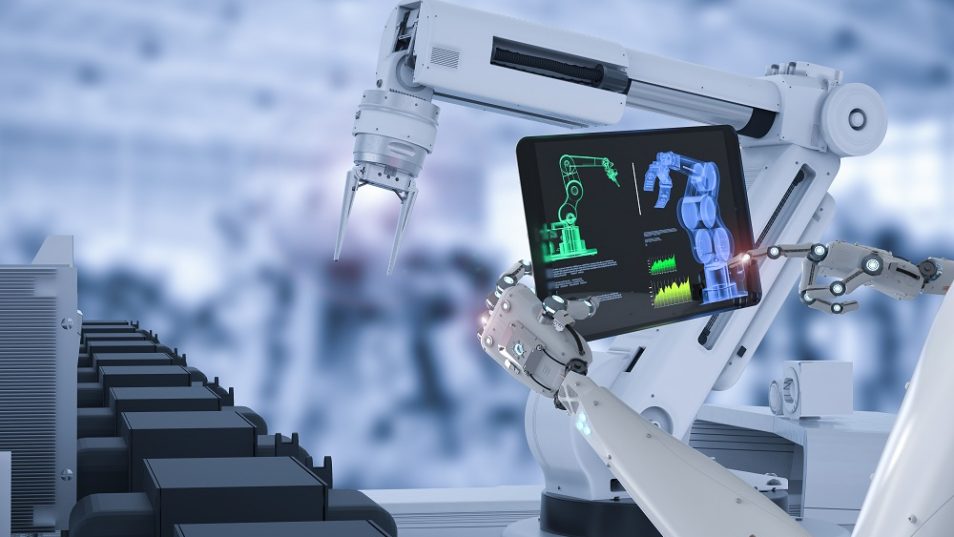Artificial Intelligence – A Key Technology of Germany’s Hightech Agenda
 © iStockphoto
© iStockphoto
AI research in Germany
German Artificial Intelligence (AI) research has a long tradition. Since 1970 German researchers are contributing pioneering work in autonomous driving, language processing, experience-based systems, evolutionary computation, and reinforcement learning. Building on these foundations, German AI research today is particularly broad-based.
At universities professorships and departments mostly focus on very specific AI technologies or their application in different technologies and research disciplines. Hence, fascinating applications of AI are being discovered in a broad spectrum of disciplines, including biology, medicine, and even social sciences. This locally specialized but multipolar research landscape is highly productive as evidenced by the fact that Germany is consistently ranked among the top countries in the world for the number and impact of AI-related research publications.
Especially in the engineering sciences, the German research systems build upon long-standing connections between academia and industry. This holds not only for large companies but also for the hidden champions, small enterprises which are often global leaders in their field. Relative to its economic power Germany ranks fourth worldwide for the number of industry-academia collaborations in AI research. Despite this strong foundation, the wealth of data that is tied to its industrial base still leaves a lot of untapped potential for further development towards an Industry 4.0.
Germany’s federal AI research strategy
The German Federal Government considers AI technologies as part of the necessary technological base to address societal challenges in areas like healthcare, energy, and climate change. The task of German AI research is identified as developing and exploring the underlying structures of these “human-based AI” technologies.
To support this goal, the federal AI-Strategy (2018) identified three fields of action:
1) Strengthening national research structures
2) Increasing European and international research cooperation
3) Supporting interdisciplinary research and sustainable utilization
A central component in this strategy is the establishment of Centres of Excellence for AI Research to provide outstanding research and training conditions in both, national and international terms. However, a cornerstone of the strategy’s success will be the close interaction with international partners and the attractiveness of the research environment for international students and researchers.
To this effect, to strengthen the international cooperation in the field of artificial intelligence the Indo-German Science & Technology Centre (IGSTC), a joint initiative by the Department of Science & Technology (DST),Government of India and the Federal Ministry of Education and Research (BMBF), organised a workshop on Artificial Intelligence in 2021 highlighting key research areas for future Indo-German collaboration, mechanisms & models for joint programs.
German Academic Exchange Service (DAAD)
The DAAD, as the world’s largest funding body for the international exchange of students and researchers, works already in close collaboration with the German universities and other funding bodies to make the German AI more visible internationally. Beyond that, the DAAD further develops its broad-spectrum support and develops new initiatives to strengthen German AI research through the international exchange: With the Konrad Zuse Schools for AI talent made in Germany developed an innovative degree and doctoral program that establishes strong links both to the local industry and internationally from early on. The Postdoctoral Networking Tour in AI is a networking tool aimed at excellent international early-career researchers. In the last two years, more than one hundred selected candidates benefitted from virtual and physical networking activities.
Read the experience of an AI Postdoc Networking Tour participant here.
In recent years, more and more universities, large non-university research institutions, and industrial research units are joining forces to form larger interdisciplinary AI research centers. This development is based on the growing need for knowledge, and data resources and is largely supported by government initiatives both on the state and the federal level. Prominent examples are the Cyber Valley initiative in southern Germany and the Centres of Excellence for AI Research, the lighthouse project of the federal government’s AI strategy.
Besides these big endeavors, smaller initiatives like the AI cooperation unit and data science academy of the application-focused Helmholtz Association show that German research institutions are increasingly pooling their AI competencies and making it easier for international AI researchers to access the German research community. Finally, as a main hub for AI research collaboration in Europe, Germany is also looking beyond its own borders. German institutions are for example heavily involved in the European Lab for Learning and Intelligent Systems (ELLIS), accounting for nine of the thirty-four ELLIS research units.
All of this not only makes German research institutions a great place to learn and do research but also an ideal starting point to explore both the European and international AI research landscape.

AuthorLuca Wettlaufer
Former Senior Desk Officer DAAD, Postdoc-NeT-AI project
